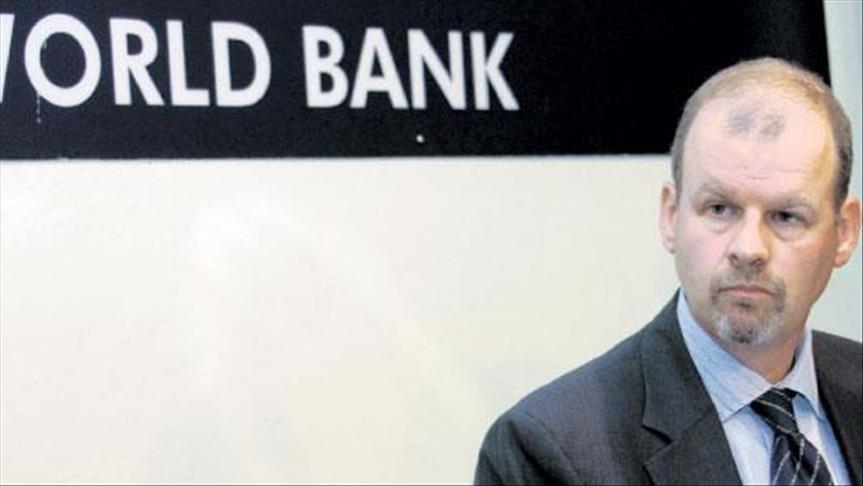
Turkey
By Andrew Jay Rosenbaum
ANKARA
With the government’s program of reforms, Turkey has a good chance of surpassing the “middle income trap,” Johannes Zutt, new Turkey country director for the World Bank told Anadolu Agency on Monday.
Zutt, who took on the role about three months ago, said that he sees the Turkish economy as generally well-managed:
“Growth was stronger than anticipated and there has been a welcome pickup in investment – I think many countries in Europe would be happy with the growth rate that Turkey has.
“Turkey has enjoyed macroeconomic stability for a reasonably long time, and that means the country also has a good investment climate.
“Though inflationary pressure continues, the government has been doing a fairly good job in containing it.”
Political uncertainty is past, with the election cycle over, Zutt continued, so the new majority government can get back to work on structural reforms.
“If you look at Turkey from 2002-2003 to today, there was a strong period of reforms that really took the Turkish economy forward,” Zutt said. “This brought Turkey to the ‘middle income’ level – more than $10,000 per capita.
“But the real challenge is: How will Turkey advance to a higher income level, avoiding the middle-income trap?” Zutt asked, adding: “That will require higher productivity, and that is where the continuing reforms will play an important role.”
Countries caught in the middle-income trap must increase the value of their exports in order to maintain wage growth.
For Turkey to do this, it has to increase productivity, and the reforms planned by the government could accomplish this if they are made in a wide range of areas, from support for productive sectors to education, Zutt said.
“For Turkey, improving the legal climate for investment is one area. The competency of management is another. And more flexible labor legislation is needed,” he added.
Like many developing countries, Turkey has a solid legal framework, Zutt said, but implementation of the laws can vary.
Zutt gave the example of the regulatory framework for the electricity sector, which now has a large number of private businesses involved.
“It functions very much as it would in a higher-income country,” Zutt said.
The World Bank is working with Turkish authorities to do the same for the gas sector, which still does not include enough private operators, nor is it structured in the way the electricity sector is, according to Zutt.
The bank is also working with the government to support sectors of the economy that are already at a high productive level, Zutt said.
And the World Bank is supporting a project to benchmark regions of the country that are performing well in specific areas, with an idea to replicating that performance in other parts of the country.
“If a given city is very successful in, for example, dispute arbitration, we try to bring that model to the attention of other cities and provinces in the country,” Zutt explained.
With attention to structural reforms, the outlook for the economy seems relatively positive, according to Zutt.
“Turkey has been managing well for some time, and we expect it to continue. I think other emerging markets would be grateful to have managed the challenges of the past few years as well as Turkey has done,” Zutt concluded.
Anadolu Agency website contains only a portion of the news stories offered to subscribers in the AA News Broadcasting System (HAS), and in summarized form. Please contact us for subscription options.

